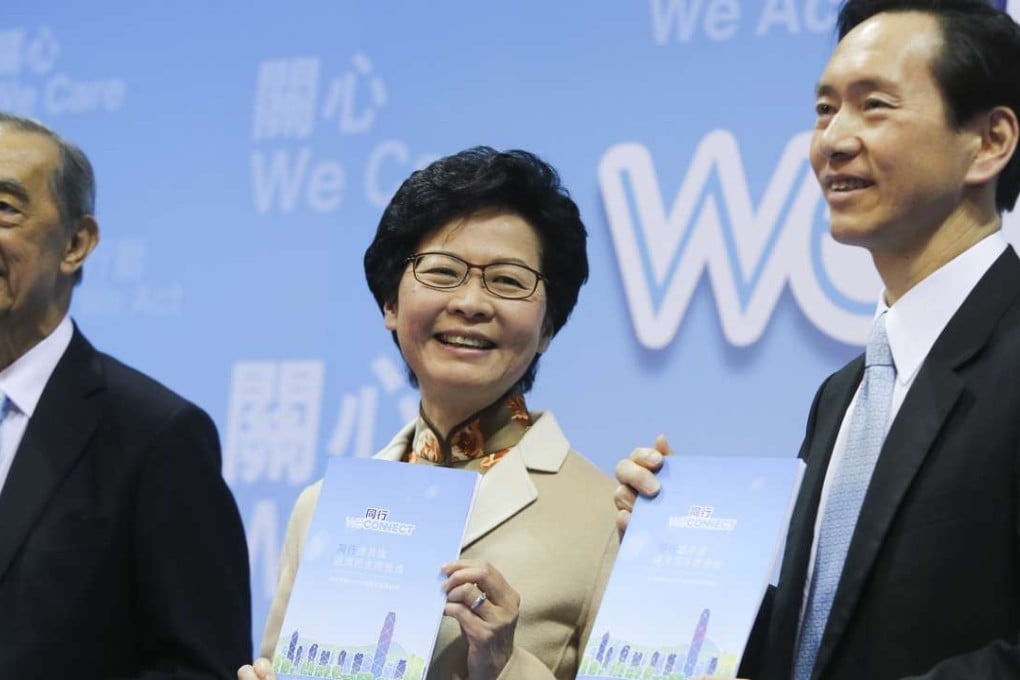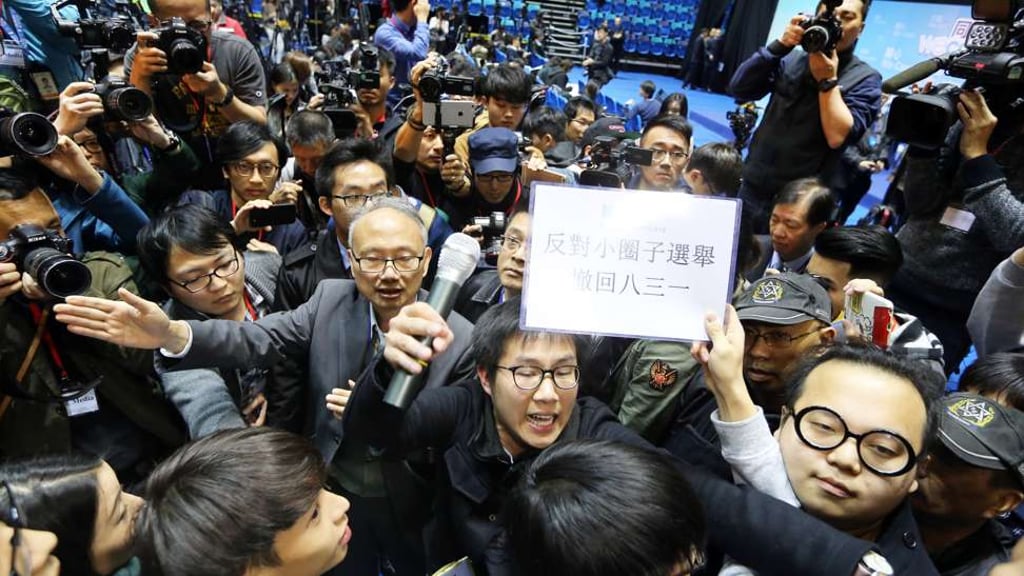Carrie Lam’s election manifesto focuses on economy, government reforms
Occupy Movement leader Joshua Wong disrupted unveiling of chief executive contender’s policy positions earlier on Monday

Her policy pledges came just 48 hours before nominations for candidates were due to close. The event at MacPherson Stadium in Mong Kok attracted a dozen protesters, including Occupy student leader Joshua Wong Chi-fung, who marched into the venue with little obstruction and sat alongside the media during her presentation.
Choosing a different approach to her arch-rival, former finance chief John Tsang Chun-wah, Lam did not commit the next government to two of Hong Kong’s most contentious issues: Political reform towards universal suffrage and the implementation of the Basic Law’s Article 23 provisions on national security.
The former issue triggered the citywide Occupy movement in 2014 while the latter prompted half a million people to take to the streets in 2003.

“The political reform [in 2014] was so contentious,” she said. “It ended in vain and the ensuing social rift and polarisation was more or less to do with the political reform.”
Lam added: “Without the atmosphere and necessary conditions, any [restart of political reform] would only disappoint [Hongkongers].”